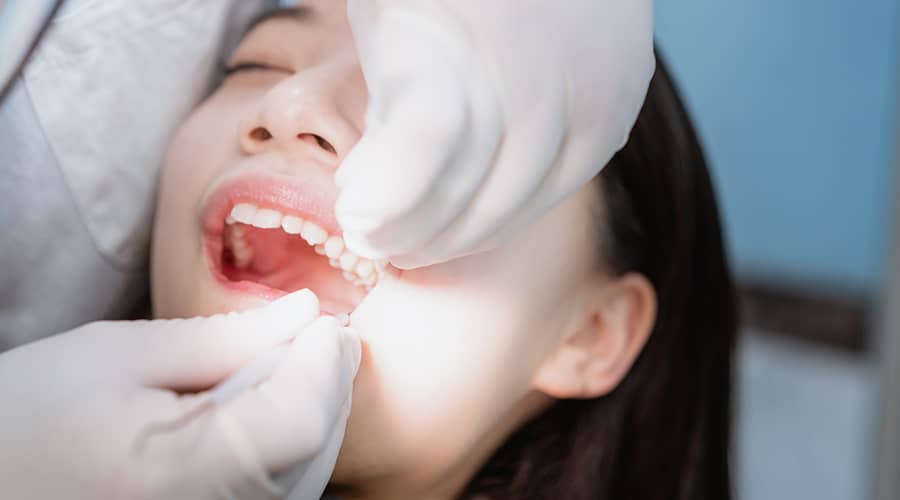
Home Instructions After Impacted Tooth Exposure
If you have any questions regarding any of this information, please ask your oral surgeon.
Instructions
Oral Facial & Implant Specialists have listed some care instructions that we recommend our patients follow post-surgeries.
- Do not disturb the wound. If surgical packing was placed at the surgical area, please leave it alone. The surgical packing helps to keep the tooth exposed. If it gets dislodged or falls out, please contact our practice for instructions.
Bleeding
A certain amount of bleeding is to be expected following surgery. Slight bleeding, oozing, or redness in the saliva is not uncommon.
Excessive bleeding can be controlled by rinsing or wiping any old blood clots from your mouth, then placing a gauze pad over the area and biting firmly for 30 minutes. Repeat as necessary. Do not rinse vigorously, suck on straws, smoke, drink alcohol or brush your teeth next to the extraction site for the first 72 hours post-surgery. These activities can dislodge or dissolve the clot and slow down the healing process.
To minimize the bleeding sit upright and avoid exercise and activities.
Please contact our practice if bleeding becomes uncontrollable.
Swelling
Swelling is an extremely common side effect following surgery. To minimize swelling, apply an ice bag covered with a towel to the surgical area(s). It is recommended that you apply ice to the area as much as possible, for up to 36 hours post-surgery. You can apply ice for 20 minutes at a time, then rest the area for another 20 minutes, then re-apply the ice.
Pain Management
You should start taking pain medication as soon as you feel the local anesthetic or general anesthetic wearing off. For moderate to severe pain, our surgeons recommend taking two Ibuprofen 400mg total (or Motrin) every 3-4 hours. Consult our practice for individuals under 18 and avoid taking more than two different types of medications at the same time.
For extremely severe pain and throbbing, the prescribed medication should be taken, as directed. Do not take any of the above medication if you are allergic to them or have been instructed by your surgeon.
It is also recommended that you not drive an automobile or work around machinery for the first 36 hours after surgery and avoid the consumption of alcoholic beverages.
Should pain persist after 36 hours post-surgery, please consult our practice.
Diet
Only consume a liquid based diet following a general anesthetic or intravenous sedation. It is recommended that you drink plenty of fluids post-surgery; avoid hot liquids, soups and hot foods in general, but liquids (such as smoothies, yoghurts, ice cream), can be eaten on the day post-surgery, making sure not to use straws. You can start returning to a normal diet as soon as possible, unless otherwise directed by your oral surgeon.
Oral Hygiene
Oral cleanliness is essential to good healing. Clean your mouth thoroughly after each meal, beginning the day after surgery. Brush your teeth normally if possible. Rinse with warm salt water (1 teaspoon of salt in a cup of warm water) six times a day. Continue this procedure until healing is complete.
REMEMBER: A clean wound heals better and faster.
Activity
Refrain from any strenuous physical activity (such as cardiovascular routines, hot yoga or swimming and cycling), immediately following surgery for at least 72 hours. Our surgeons recommend that you do light exercise (such as walking and gentle stretching). If you experience any discomfort while walking or stretching, discontinue the exercise.
Questions/Problems
We want you to have a smooth and pleasant recovery. Following these instructions will ensure the best possible outcome. Please call the office if you have any questions or concerns about your progress. Thank you for trusting us with your oral and maxillofacial surgery needs.
Call Us